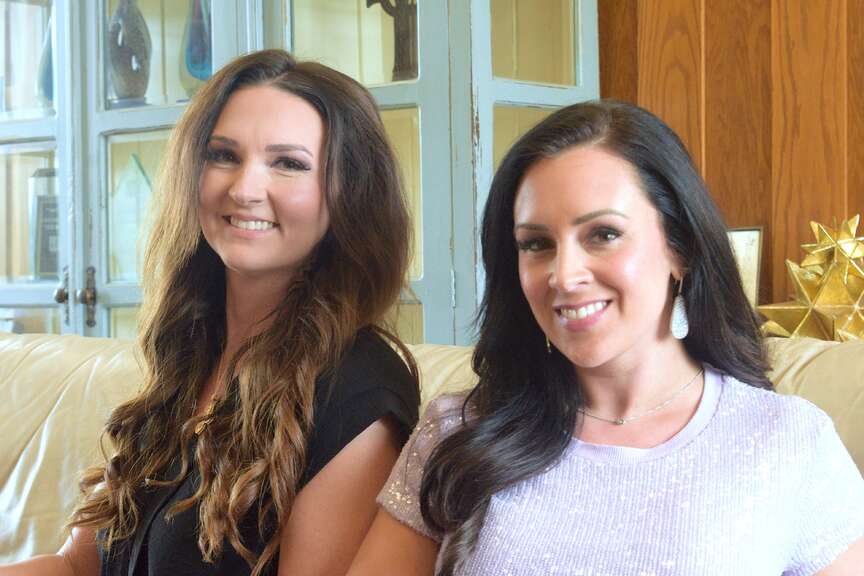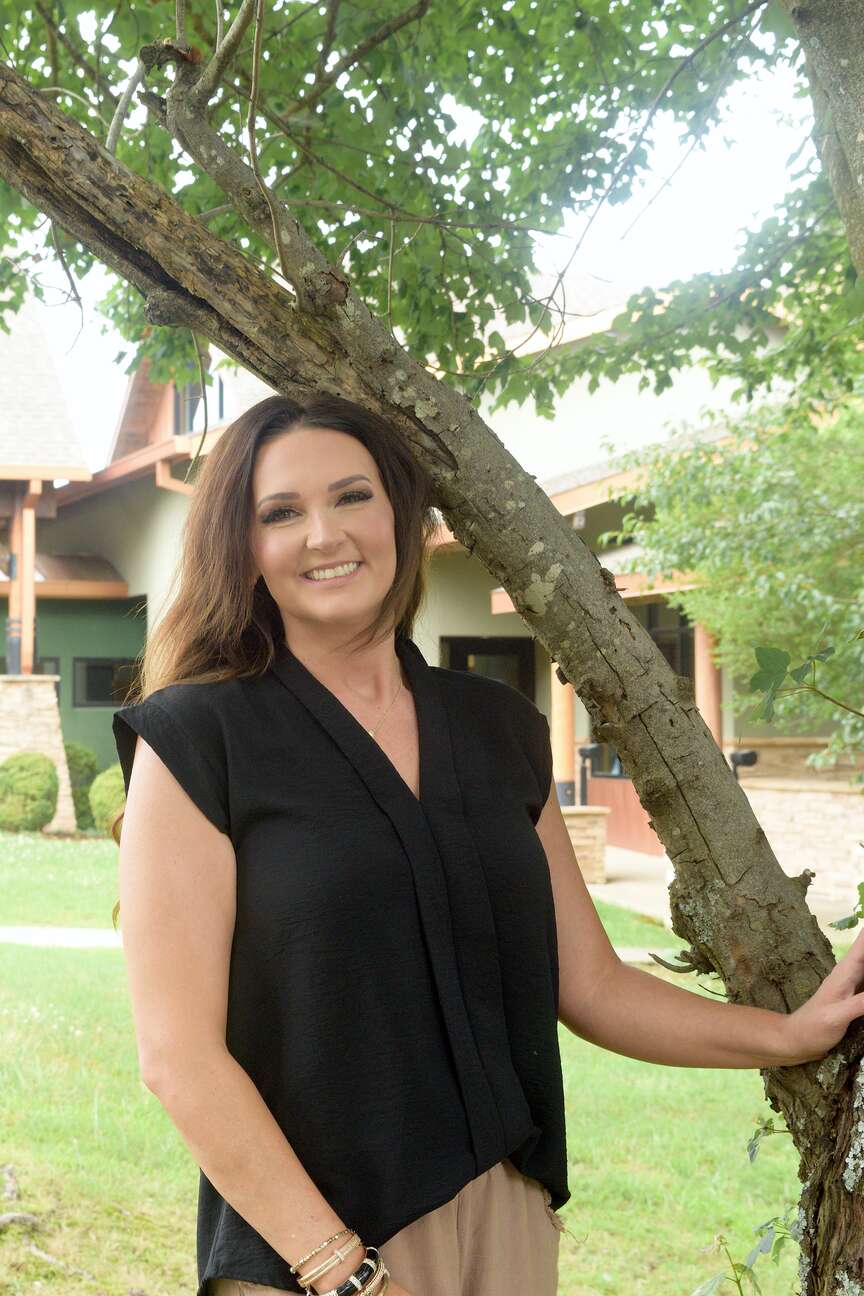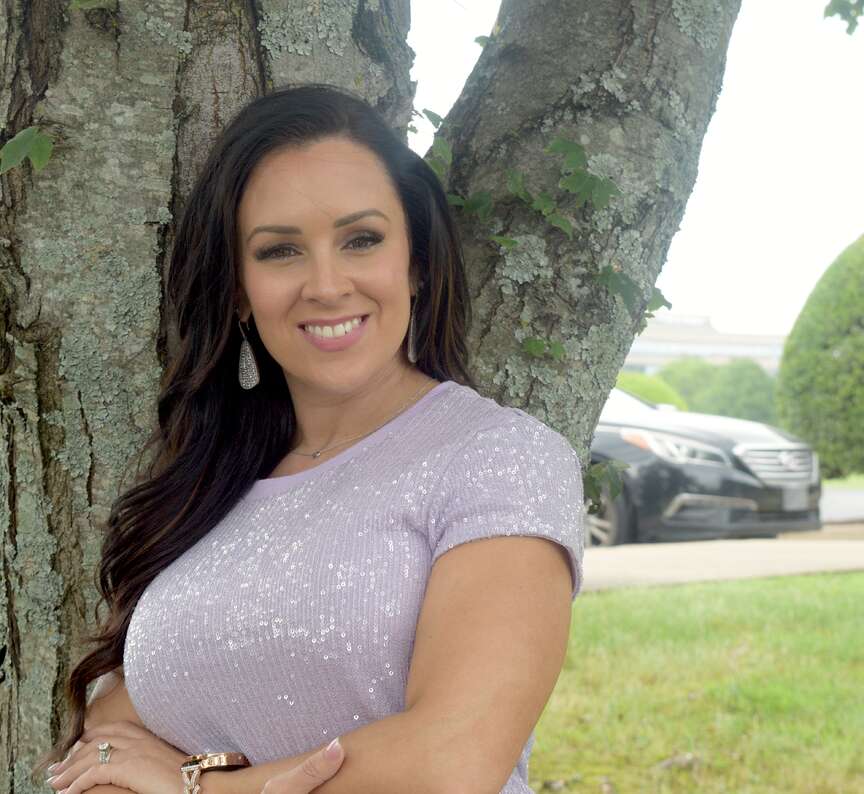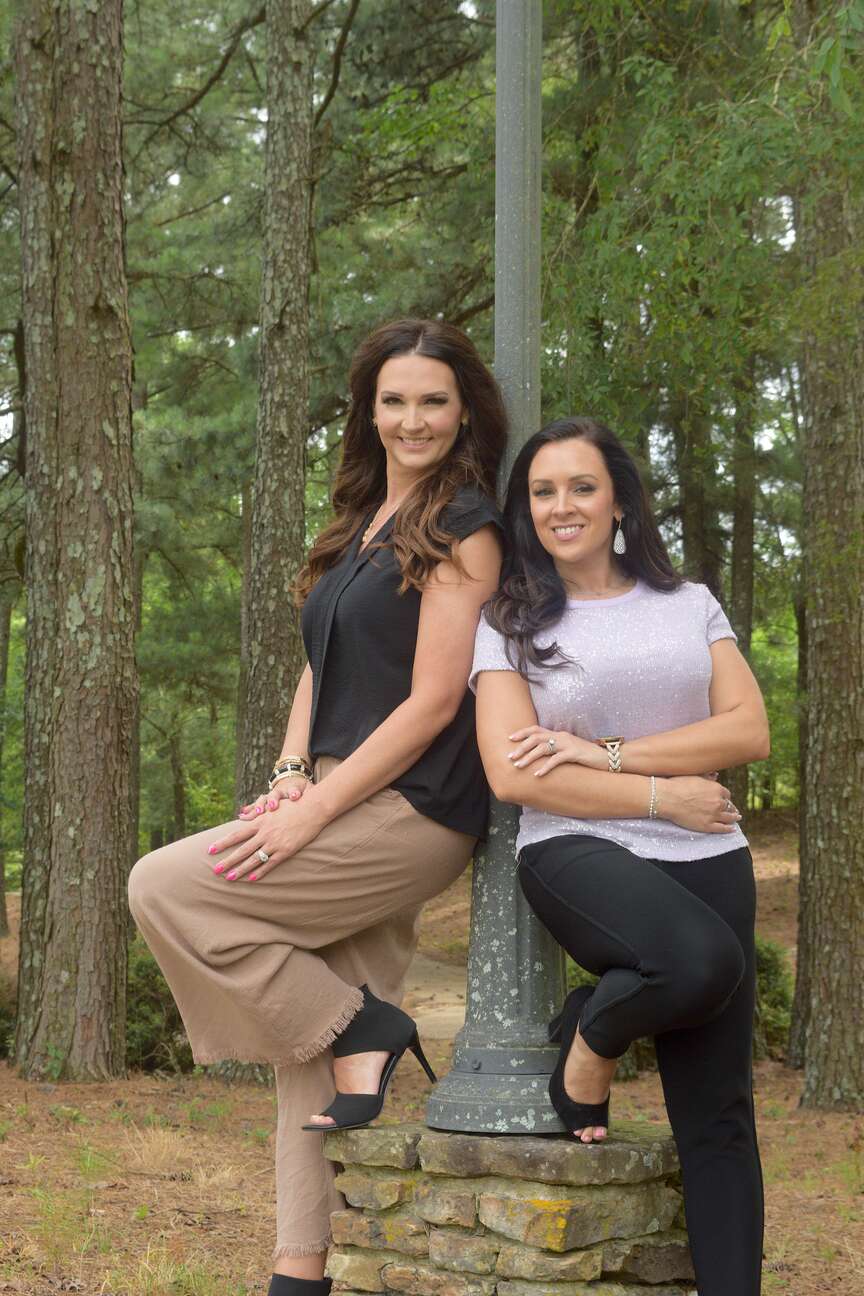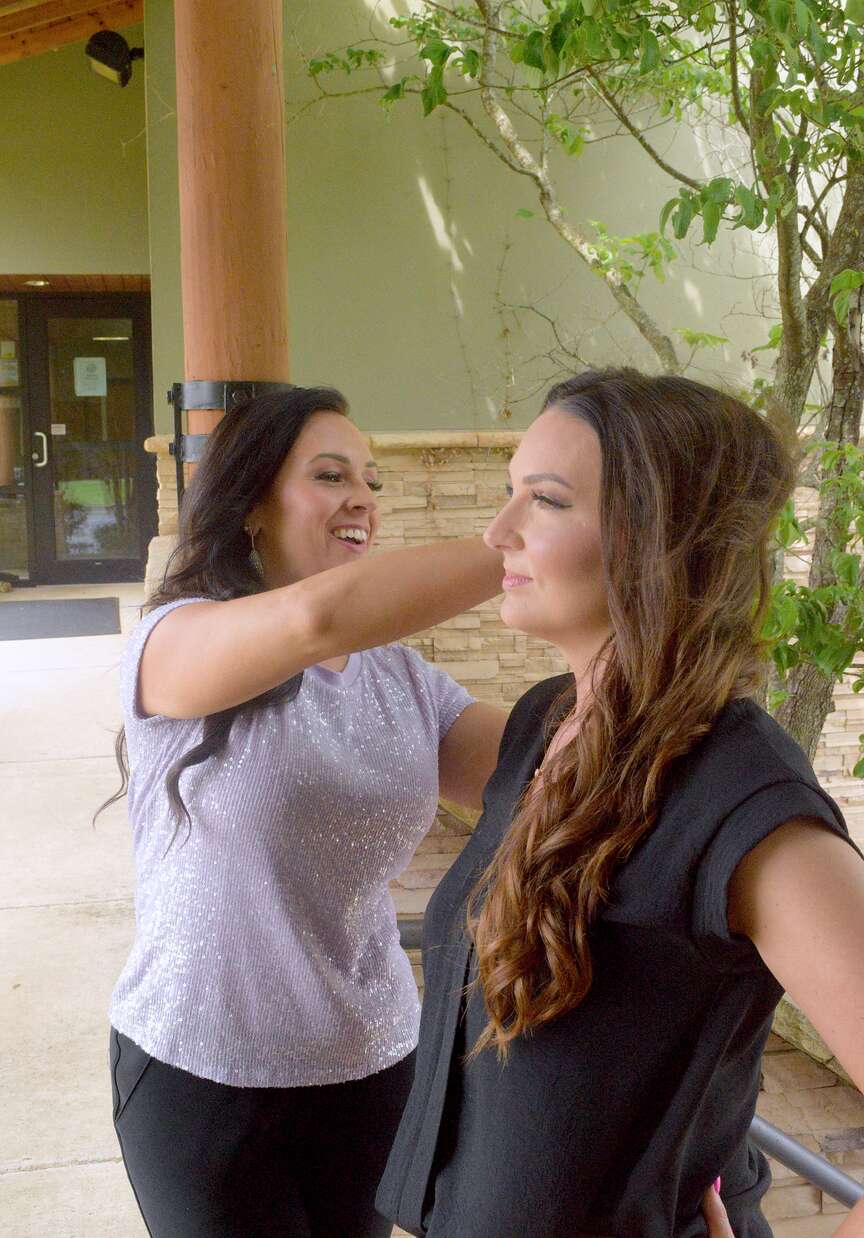As oncology nurse practitioners at Genesis Cancer and Blood Institute, Tiffany McConathy and Virginia Laliberte have a unique perspective when it comes to National Cancer Survivors Month.
Each June cancer survivors are recognized for their continued fight, and in the minds of McConathy and Laliberte, that group includes anyone who is currently undergoing treatment or those whose cancer is in remission.
"We consider a cancer survivor to be anyone that has a cancer diagnosis that is currently going through treatment or that has completed treatments," McConathy said. "Like Virginia said, a lot of times now, as we're going along, we've got patients that are living five, 10 years on these new therapies that we have, these targeted agents, and so to not consider that a cancer survivor to me would be an injustice to them because they are surviving, and they're thriving even. They have good quality of life, and most of these patients are able to carry on careers that they've had going on. They're able to continue their families. They're able to go and do the things that they want."
McConathy also had a daughter who died from a pediatric brain tumor, which gives her another perspective on cancer.
"I had never had anybody in my family with cancer, but God works in mysterious ways and put me in this field to be able to advocate for my daughter," she said. "And now that I've been able to do that, I've also been able to advocate for my patients and to help them through the worst time in their life. They literally put their life in our hands, and they say, 'I'm trusting you to help me.'
"And that's a big responsibility for someone to walk in here and let us care for them. And so I think that that's probably the most important thing that we need to remember as providers is that these patients are choosing us. They're choosing to be here. They could go somewhere else, but they're choosing us to entrust our lives to us and to hopefully help cure them and make them better."
Laliberte said the new targeted therapies help treat patients without many of the more common side effects that traditional chemotherapy and radiation cause.
"I heard a great analogy once," she said. "It was that chemotherapy is like a sledgehammer banging down the door of those cancer cells. It just destroys everything in its path, and these targeted therapies are like the key that opens that door and allows the treatment into the cell so that you have access to get rid of the cancer that way.
"I really liked that analogy, because it gives them a visual image of some of what the differences are. It's a target. It's a specific thing that we're aiming for that either shuts off the cancer growth or blocks off blood flow to the cancer so that it can't thrive and dies off, or in the case of immunotherapies, it removes basically a cloak that hides the cancer from your immune system, so that it can go and attack the cancer."
While not all cancers respond to targeted therapies, Laliberte said new treatments are being discovered that "shut off the cancer growth without destroying the whole person's cells."
"Well, first I like to explain to patients now we treat patients with what we call precision medicine," McConathy said. "So precision medicine is where we can break down the whole genome of a tumor cell and look at the genetic markers and see if they're able to take these targeted treatments. Precision medicine allows us to better treat a cancer patient individually. Cancer is all so very different, and it's different from person to person. You may have lung cancer, and I may have lung cancer, but they're both treated completely differently. And I think that's probably the most common misconception in the general population is that we treat all cancers the same."
Being an oncology nurse is not an easy job, even for Laliberte and McConathy who have both been doing this for more than a decade.
"This job can be very heavy," McConathy said. "These patients, like I said earlier, they're entrusting their lives to us, and not only do they come in with their problems about their cancer, they come in with spousal abuse or they come in with 'I don't have enough money to pay for these treatments.' And it's really heavy. It's heavy work, but these patients have entrusted me with their care and I want to see that through. ... But even though it's a heavy job, it's a very rewarding job. Whenever you can see these issues through, whenever you can get them to the other side of this cancer diagnosis, and say 'Look, you've beat this. You don't have to worry about this anymore.'"
Laliberte said that sometimes just doing the best you can as a cancer patient is enough to give them a sense of accomplishment, regardless of outcome.
"Not even just when they're able to beat it, but if they're able to live to the end of their life in a way that they feel satisfied with their life," she said. "There's something to be said about doing everything that you can. Even if it seems futile, there's still hope in having your symptoms managed as well as you can and the sense of doing everything that you can. Sometimes people will ask me, 'Well, what do you do if the doctor just won't stop treating them, and they're just so sick?' Well, not everybody who's just so sick is actually dying from their cancer right now. Sometimes it's other things that are actually treatable that are temporary."
Both nurses agreed that patients should ask their doctors questions about their diagnosis and treatment, and McConathy noted that a second opinion is always a good option.
"Definitely ask questions to your provider, but also, if you don't feel confident in your provider's answer get a second opinion," she said. "Any good oncologist is going to welcome a second opinion because they should be confident in what they're treating the patient with. ... I think that it's important, especially if you don't feel confident in what you're hearing."
Laliberte said getting a diagnosis from an oncologist is not how it is still portrayed in the media.
"Used to be in movies and stuff, you still kind of see them say, 'Well, my doctor says I have three months to live. I have six months live. I might live a year with treatment.' And we don't tell patients that anymore because honestly we don't always know. A breast-cancer patient, even a metastatic breast cancer patient, it's extremely common for them to live at least five years," she said.
The key to the best prognosis, Laliberte said, is early diagnosis.
"Lung cancer patients right now probably have one of the shortest durations of survivorship with it being the most common type," she said. "That's definitely something we need improve to improve on. There are things going on like lung cancer screening programs to try to catch lung cancers earlier, which is a very high priority in reducing lung cancer mortality. That is not necessarily something that's going to reduce the incidence of lung cancer, but it will hopefully reduce the lung cancer deaths, so that we can reduce or increase survivorship for that."
Laliberte also noted that prevention measures are also important.
"One thing that the American Cancer Society is focusing on right now in their research is things that are causing cancers and ways that we can prevent it," she said. "So that's going to be things like HPV vaccines can hopefully eradicate cervical cancers and a lot of head and neck cancers one day in the future, maybe not even too far in the future. Things like anti-smoking campaigns. I've been actually really distressed about the number of vaping and (electronic cigarette) shops that I've seen pop up in the last couple of years. I feel like at this point in our modern world, we should be doing less of that, not more of that. But there's a lot of education needed in regards to the risks of vaping and e-cigarettes as well as anti-smoking."
McConathy said any kind of smoking can cause cancers, not just tobacco.
"It's not only tobacco," she said. "People think that marijuana is safe and that they won't develop lung cancer from marijuana, and there's an old film (that posits) marijuana cures cancer. Well, we have so many patients on marijuana if it cured cancer, we'd definitely know about it. Unfortunately, they still pass away even though they're using, but anything foreign that you're taking into your body is going to cause a risk for a malfunctioning cell, which is a cancer cell."


